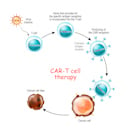
Vitamin D: Not Just for Bones Anymore
We know that ample opportunities exist to produce and store Vitamin D in the liver and fat from exposure to sunlight during the spring, summer and fall months ─ even in the far northern latitudes (NIH, 2014). Yet many people still find they are Vitamin D deficient. Why does this occur and are these deficiencies significant enough to influence the development of dementia
Recent research by a team from Rutgers, 2015, indicates that low vitamin D levels, common in older adults, are associated with “accelerated decline in episodic memory and executive function.” These two domains are strongly associated with Alzheimer’s disease (Brooks, 2015, pg.1). Additionally, there is a growing body of research showing a strong relationship between vitamin D, cognitive decline and brain atrophy.
Does this mean that, as healthcare workers, we should recommend all older adults take vitamin D supplements to decrease the risk of dementia? Not necessarily. Further research is necessary to determine the effects of vitamin D supplements on dementia. Taking vitamin D is not without risk; therefore, healthcare providers should assess for and treat proven vitamin D deficiencies.
According to the Institute of Medicine, Vitamin D serum concentrations of 50 nmol/L is the serum 25(OH)D level adequate for bone health and overall health in 97.5% of the population. Serum concentrations >125 nmol/L (>50 ng/mL) are associated with potential adverse effects. Additionally, a serum 25(OH)D concentration consistently >500 nmol/L (>200 ng/mL) is considered to be potentially toxic (NIH, 2014).
How Vitamin D Deficiencies Occur
Vitamin D deficiencies usually result from dietary inadequacy, impaired absorption and use, increased requirement or increased excretion. Vitamin D deficiency can occur when usual intake is lower than recommended levels, exposure to sunlight is limited, the kidneys cannot convert 25(OH)D to its active form, or absorption of vitamin D from the digestive tract is inadequate (NIH, 2014). In addition, it has been shown that older adults, especially dark-skinned individuals, commonly have low vitamin D levels (Brooks, 2015).
As there are not currently any effective dementia prevention protocols, healthcare workers should remain open to new research looking at the effects of vitamin deficiencies on cognition. A study conducted by Joshua Miller MD showed that, ”the magnitude of the effect of Vitamin D insufficiency on cognition was substantial," and that “this may be particularly important in African Americans and Hispanics who have a high prevalence of low vitamin D status" (Brooke, 2015, pg.1).
While there is a growing body of evidence showing a link between vitamin D deficiency and an increased risk of dementia, more research is needed to evaluate the impact of vitamin D deficiency correction on cognitive performance. The bottom line: Vitamin D is not just for bones anymore!
References:
- National Institutes of Health [NIH]. Office of Dietary Supplements. (2014). Vitamin D: Fact sheet for health professionals. Retrieved from https://ods.od.nih.gov/factsheets/VitaminD-HealthProfessional/
- Brooks, M. (2015). Low vitamin D linked to Cognitive Decline. Retrieved from http://www.medscape.com/viewarticle/850943
© 2015. AMN Healthcare, Inc. All Rights Reserved.
Biography:
Dr. Miller-Hoover is a certified Acute and Critical Care Pediatric Clinical Nurse Specialist and has worked in nursing for more than 30 years. Her nursing career has taken her from the bedside, to education and leadership in critical care units where she has cared for patients of all ages. Dr. Miller-Hoover is a published author in peer-reviewed nursing journals and has been accepted for various poster and podium presentations at national conferences.




